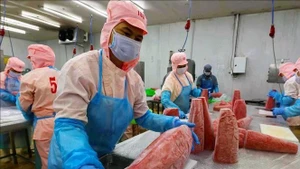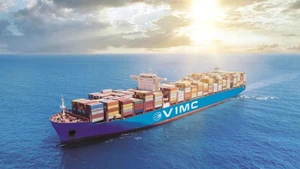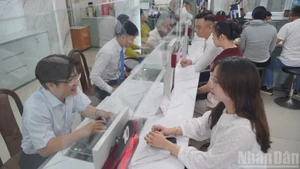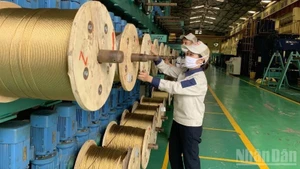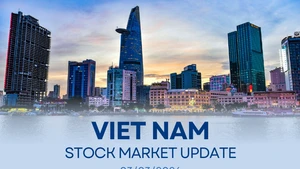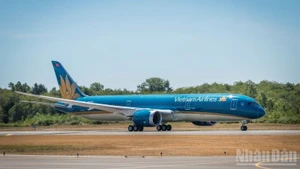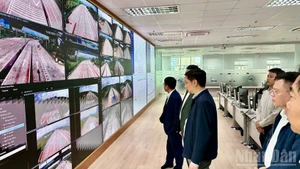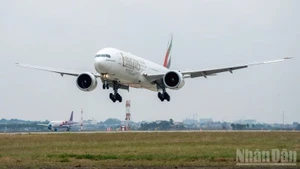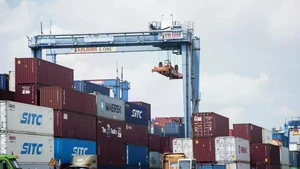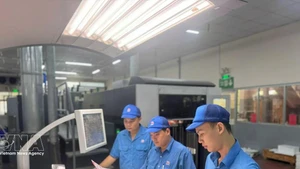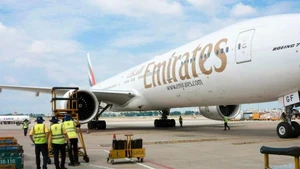These efforts have laid an important foundation for enterprises to proactively seek new markets, diversify consumption channels, expand production scale, and move towards sustainable development.
Belarus – A market full of potential
Statistics show that bilateral trade between Viet Nam and Belarus has grown significantly. In 2024, total import-export turnover between the two countries reached approximately 59.7 million USD (with Viet Nam exporting 27.9 million USD to Belarus and importing 31.8 million USD), an increase of nearly 45% compared to 2023. However, this growth has yet to match the full cooperation potential between the two countries and the expectations of their business communities.
For Ho Chi Minh City alone, export turnover to the Belarusian market in 2024 was around 3.6 million USD, mainly comprising key product groups such as seafood, cashew nuts, plastic materials, machinery, equipment, and spare parts.
This figure reflects the growing interest of Ho Chi Minh City’s enterprises in exploring cooperation opportunities and potential investment in the Belarusian market.

According to Tran Phu Lu, Director of the Ho Chi Minh City Investment and Trade Promotion Centre, Belarus, with its developing economy and open investment policies, is emerging as a promising destination for Vietnamese businesses and investors. The partnership between Viet Nam and Belarus has made significant progress in recent years, especially since the Free Trade Agreement between Viet Nam and the Eurasian Economic Union (EAEU) came into effect.
Amid ongoing challenges, many Vietnamese enterprises are making efforts to expand export markets, enhance production and export capacity, strengthen competitiveness, and integrate more deeply into global value chains, particularly in promising new markets such as Eastern Europe. This region is regarded as a potential yet underexploited market offering abundant opportunities for cooperation and business growth.
Viet Nam has been, and continues to be, one of Belarus’s priority partners in Southeast Asia. The current Free Trade Agreement between the EAEU and Viet Nam has created favourable conditions for effective interaction between the business communities of both countries. This has been evidenced by the steady growth in bilateral trade turnover.
Kiryl Halantsou,
Consul General of Belarus
in Ho Chi Minh City
Viet Nam has been, and continues to be, one of Belarus’s priority partners in Southeast Asia. The current Free Trade Agreement between the EAEU and Viet Nam has created favourable conditions for effective interaction between the business communities of both countries. This has been evidenced by the steady growth in bilateral trade turnover.
Kiryl Halantsou, Consul General of Belarus in Ho Chi Minh City, emphasised that Viet Nam remains one of Belarus’s top partners in Southeast Asia, and that the existing EAEU–Viet Nam Free Trade Agreement has further facilitated productive engagement between the two nations’ business sectors, reflected in the continual increase in bilateral trade volume.
B2B Connections – Enabling export enterprises
In 2024, total trade turnover between Viet Nam and Singapore exceeded 10.5 billion USD, with Viet Nam’s exports reaching 5.156 billion USD. Singapore currently ranks as Viet Nam’s fourth-largest trading partner within ASEAN.
For Ho Chi Minh City, total export turnover to Singapore in 2024 reached 563 million USD, up more than 6% compared to 2023.
Singapore also led in total investment capital in Ho Chi Minh City in 2024, with nearly 1.1 billion USD across 179 new projects, 46 adjustments, and more than 240 cases of capital contributions or share purchases.
According to Ho Thi Quyen, Deputy Director of the Ho Chi Minh City Investment and Trade Promotion Centre, both Viet Nam and Singapore are members of the Comprehensive and Progressive Agreement for Trans-Pacific Partnership (CPTPP) and the Regional Comprehensive Economic Partnership (RCEP).
Therefore, the two sides have been working to leverage these shared trade agreements to enhance cooperation and contribute to the economic development of both countries.

Experts note that Singapore is a demanding market with stringent quality requirements and intense price competition. Imported food products are sampled, and undergo quality inspection before being circulated.
To expand exports to Singapore, Cao Xuan Thang, Commercial Counsellor and Head of the Vietnam Trade Office in Singapore, advised that businesses should pay particular attention to product packaging.
Industrial products must have packaging appropriate to their characteristics, ensuring safe transport and product integrity. Labels must be in English or include supplementary English labels. Packaging should clearly display all standards and certifications (if any), especially for Halal products.
Regarding standards and certification, products must meet all common international quality and management system standards, as well as specific requirements according to each product category.
In addition, to effectively penetrate the Singaporean market, Vietnamese enterprises should actively participate in trade fairs and exhibitions to connect with Singaporean and international partners. They should also engage more in e-commerce channels and strengthen business-to-business (B2B) connections with partners in Singapore.

